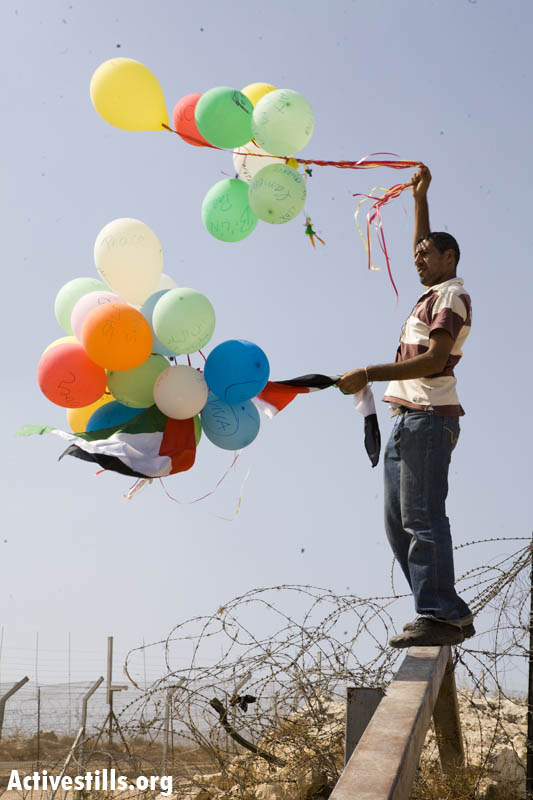Early this week, in the middle of a extreme heat wave, I found myself sitting in the open air pen which is known as the waiting area of the Ofer military court in the West Bank. The Ofer military court is one of the main court facilities in the West Bank run by the Israeli military. It acts as a legal arm of the occupation dealing with many cases in connection with the Palestinian unarmed Resistance. Israeli citizens have the opportunity to witness trials there but few outside of a dedicated group of activists visit the facility. The court system does not operate efficiently or even on time. It operates as a symbol of the occupation complete with the soul crushing attitudes of prison guards and army officers that work there and the endless waiting which is a part of every visit. If one wanted a series of Eden Abergil photos, the Ofer military court would be the first place that I would send them.
On Tuesday morning, Adeeb abu Ramha had his appeal before the military court at Ofer. Usually, appeal trials begin two to three hours late but on this day it began only after a ten minute delay. Perhaps this was due to do with the fact that the British Council, Spanish government and European Union all sent representatives to oversee the Israeli ‘conveyor belt justice system’ at work in Ofer.
Adeeb abu Rahma is a taxi driver and father of nine from the village of Bi’ilin. On 9 July 2010 he was found guilty of incitement of violence against Israeli security forces due to his participation with thePopular Struggle committee against the wall in Bi’ilin . On the day of his sentence, abu Rahma had been in jail for exactly one year. Adeeb was sentenced to one year by the court. If the military court system worked according to legal precedent , Adeeb would have been released the same day as his verdict. However, the army appealed the decision in an attempt to keep him in jail for as well as possible.
The appeal hearing began with legal adv. Gabi Lasky attacking the court for using a bizarre understanding of the law which in reality had nothing to do with the legal system but was rather an instrument of occupation. During the course of four hours, Lasky systematicaly showed how the court allowed impermissible evidence in the conviction of abu Ramha (such as testimony gleaned from children held in horrible conditions in Israeli jails. See Amira Hess’s excellent report from yesterday’s Haaretz) and ignored previous court percents as well as soldier testimonies. The judge was dismissive of most claims brought up by Lasky and acted unsurprised when the military persecutors were unable to respond directly to claims of misconduct in the proceedings.
After the five hour hearing, the feeling among the defense lawyers was the abu Ramha would be charged with a sentence of fourteen months and released so that the army would maintain a semblance of fairness to the law. Nothing will be read about this trial in the mainstream media. Outside a few ‘activist’ websites, little will be discussed about how the Israeli occupation legal system just crushed another possible Palestinian Gandhi.

